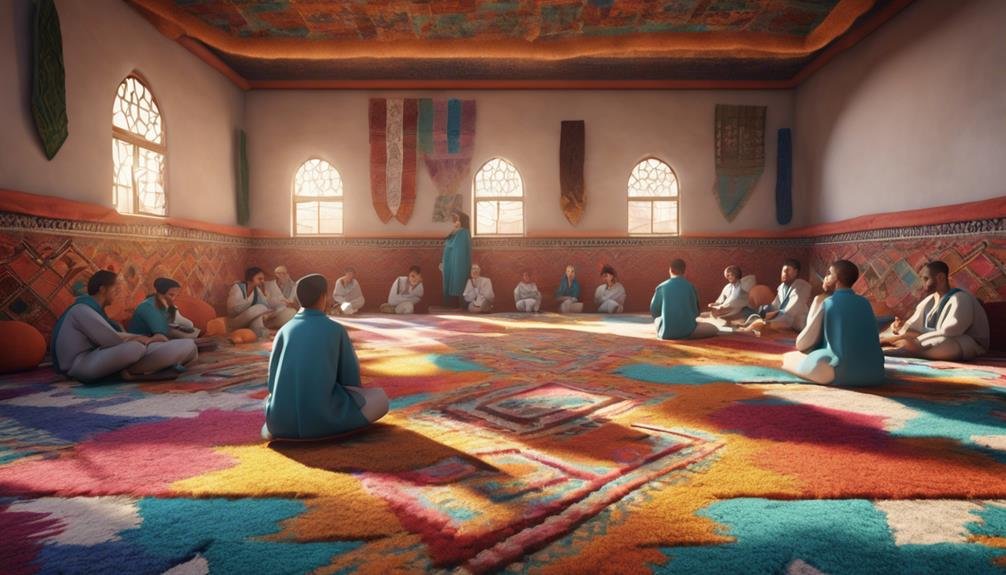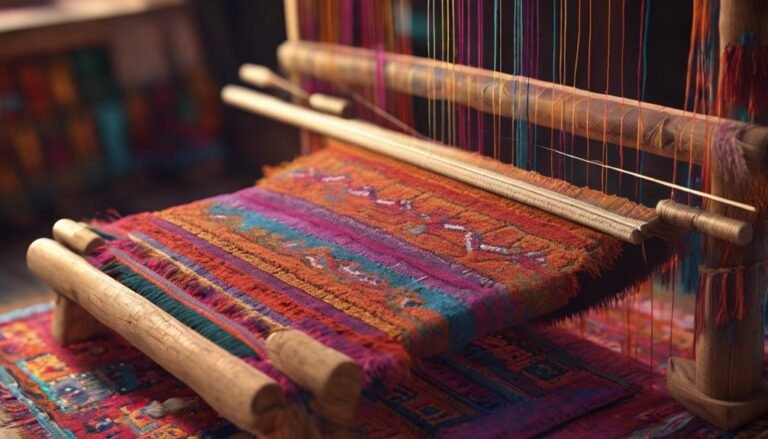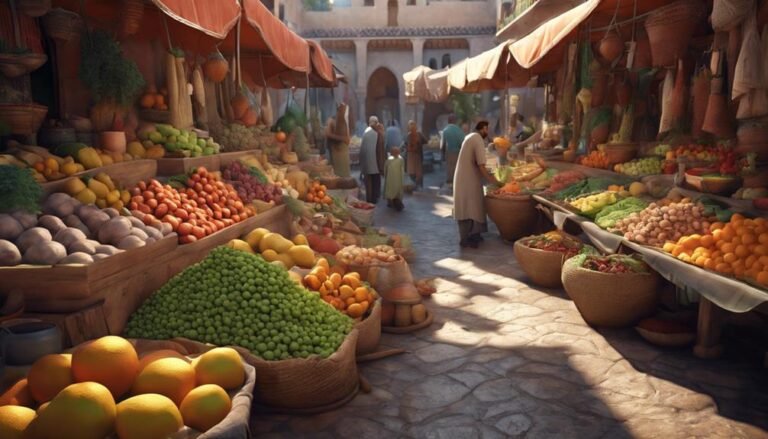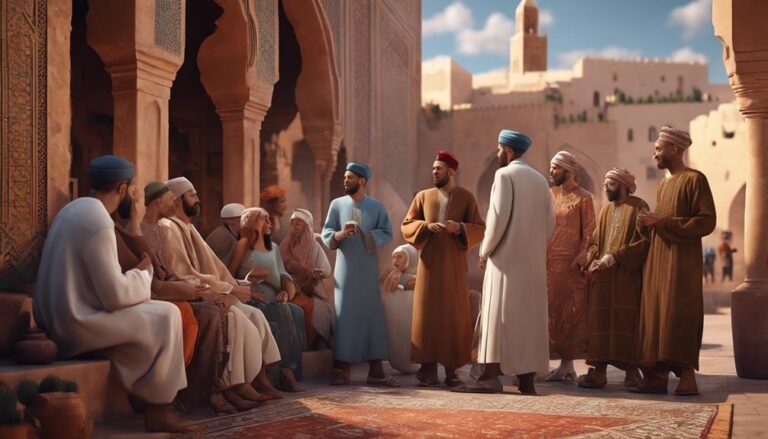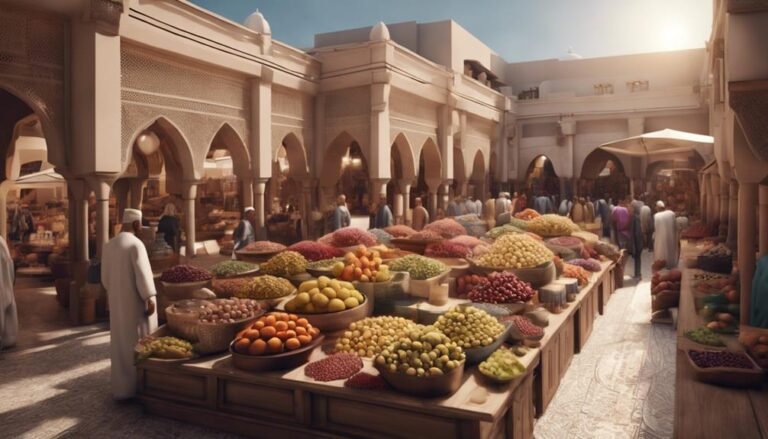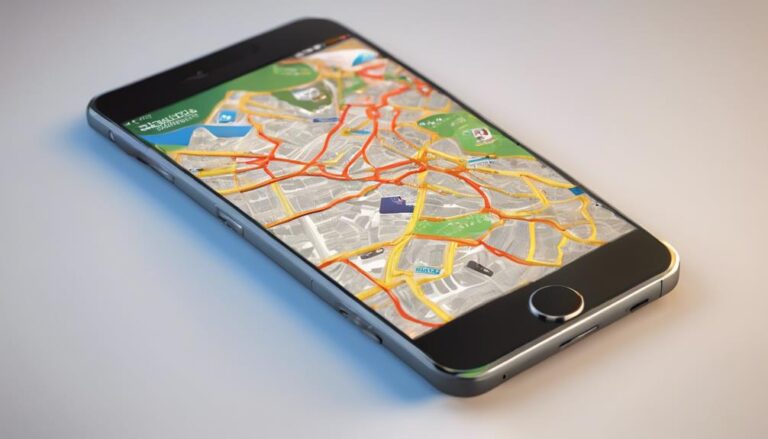In exploring the Moroccan approach to education, you'll discover a blend of traditional Islamic teachings and modern practices influenced by Arab, Berber, and French legacies. This system emphasizes academic knowledge, practical skills, and real-world applications across languages, math, sciences, and arts. Morocco focuses on innovative pedagogical approaches, diverse assessment methods, and aligning with global standards to enhance learning outcomes. Teachers undergo continuous training to create conducive learning environments. Multilingual education and cultural integration prepare students for global interactions. Scholarship programs, community engagement, and parental involvement enhance access to education. Technology integration revolutionizes student engagement. This holistic approach balances tradition with modernity for global challenges.
Key Takeaways
- Blend of traditional Islamic teachings with modern practices for a balanced education system.
- Emphasis on academic knowledge, practical skills, and real-world applications.
- Multilingual education and cultural integration to prepare students for global interactions.
- Innovative pedagogical approaches, diverse assessment methods, and structured curriculum development.
- Strategies for enhancing access to education through scholarships, community engagement, and parental involvement.
Historical Foundations of Moroccan Education
Throughout Moroccan history, the evolution of education has been deeply intertwined with the country's cultural and political developments. Historical influences have played a significant role in shaping the educational philosophy of Morocco. The country's rich heritage, influenced by Arab, Berber, and French colonial legacies, has left a lasting impact on its approach to education.
Morocco's educational philosophy reflects a blend of traditional Islamic teachings with modern educational practices. The emphasis on knowledge and learning can be traced back to the Islamic Golden Age when centers of learning such as madrasas flourished. This historical legacy continues to inform Morocco's dedication to education as a means of personal and societal advancement.
Moreover, the colonial period introduced Western educational ideals that emphasized critical thinking and scientific inquiry. These influences have contributed to Morocco's contemporary education system, which aims to balance traditional values with modern skills necessary for a globalized world. By understanding the historical foundations of Moroccan education, one can appreciate the complexities and nuances that shape the country's approach to learning.
Educational System Structure and Organization
As you explore the Moroccan educational landscape, it's essential to examine the School Curriculum Overview, which shapes the knowledge and skills imparted to students.
Additionally, delving into the Teacher Training Programs sheds light on the preparation and professional development of educators in the system.
Understanding the Student Evaluation Methods employed provides insight into how learning outcomes are assessed and monitored within the Moroccan educational framework.
School Curriculum Overview
An examination of the Moroccan educational system reveals a structured and organized curriculum that emphasizes both academic knowledge and practical skills.
The curriculum in Moroccan schools is designed to engage students through a combination of traditional teaching methods and interactive approaches. Teachers often incorporate group discussions, hands-on activities, and real-world applications to enhance student engagement.
The curriculum covers a wide range of subjects, including languages, mathematics, sciences, social studies, and arts, providing students with a holistic educational experience.
Teacher Training Programs
Teacher training programs in the Moroccan educational system are essential for shaping effective instruction in schools. These programs focus on enhancing educators' understanding of pedagogical approaches and teaching strategies through specialized coursework and practical training. Teachers learn innovative classroom techniques to engage students effectively and develop skills in assessing student progress accurately. The training emphasizes the importance of tailored teaching strategies that cater to diverse learning styles and needs. Overall, these programs aim to empower educators with the knowledge and tools necessary to create dynamic learning environments that foster academic growth and success for all students.
These programs play a pivotal role in ensuring the quality of instruction delivered in schools. Assessment methods are a key component, equipping teachers with the skills to evaluate student progress accurately. By emphasizing personalized teaching strategies, the programs aim to create inclusive learning environments that meet the needs of every student. Through a combination of theoretical knowledge and practical training, teachers are equipped to engage students effectively and facilitate their academic growth.
Student Evaluation Methods
Within the Moroccan educational system's structure and organization, student evaluation methods are intricately designed to measure academic progress and learning outcomes effectively. Assessment techniques in Morocco encompass a variety of methods, including standardized testing, classroom assessments, and project-based evaluations. These techniques aim to provide a thorough view of student performance across different subjects and learning areas.
Grading criteria are typically based on a combination of factors such as class participation, homework completion, exam scores, and overall understanding of the subject matter. The Moroccan approach to student evaluation values a holistic assessment of each student's abilities and knowledge, allowing educators to tailor their teaching methods to better support individual learning needs.
Curriculum Development and Reforms
In the domain of education in Morocco, the ongoing focus on curriculum development and reforms underscores the nation's commitment to enhancing learning outcomes and aligning with global educational standards. The Moroccan educational system is actively engaging in the following areas:
- Innovative Pedagogical Approaches: Moroccan curriculum development emphasizes the integration of modern teaching methods that cater to diverse learning styles.
- Diverse Assessment Methods: Reforms in curriculum design include the implementation of varied assessment techniques to provide a thorough evaluation of students' knowledge and skills.
- Holistic Curriculum Design: The curriculum is structured to encompass a wide range of subjects, ensuring a well-rounded education for students.
- Effective Implementation Strategies: Morocco is focusing on implementing the revised curriculum efficiently across schools, ensuring that students receive the intended benefits of the reforms.
These efforts reflect a thoughtful and progressive approach to education, aiming to equip Moroccan students with the skills and knowledge necessary to thrive in a rapidly evolving global landscape.
Teacher Training and Professional Development
The enhancement of instructional methodologies and continuous professional growth play a pivotal role in fostering educational excellence within the Moroccan context. Ensuring effective classroom management and student engagement are key aspects of teacher training in Morocco. Teachers are encouraged to develop strategies that create a positive learning environment and cater to the diverse needs of students. Professional growth is nurtured through collaboration opportunities where educators can share best practices, engage in workshops, and participate in ongoing training programs to refine their teaching skills.
To provide a clearer insight into the focus areas of teacher training and professional development in Morocco, the following table outlines key aspects:
| Focus Area | Description |
|---|---|
| Classroom Management | Emphasizes creating a conducive learning environment, establishing routines, and discipline. |
| Student Engagement | Focuses on methods to keep students actively involved and motivated in the learning process. |
| Professional Growth | Encourages continuous learning, attending workshops, and seeking collaboration opportunities. |
| Collaboration Opportunities | Provides platforms for teachers to work together, share ideas, and enhance teaching practices. |
Through a structured approach to teacher training and professional development, Morocco aims to equip educators with the necessary skills to deliver quality education and support the holistic development of students.
Emphasis on Multilingual Education
When considering the emphasis on multilingual education in Morocco, it's essential to acknowledge the country's rich language diversity and the significance of promoting cultural integration through language learning.
Understanding the importance of multilingualism not only fosters communication across diverse communities but also bridges gaps between different cultures.
Implementing strategies that embrace various languages can lead to a more inclusive educational system that celebrates the linguistic heritage of Morocco.
Language Diversity
Exploring the Moroccan approach to education reveals a strong emphasis on promoting multilingual education to foster linguistic diversity and inclusivity. In Morocco, language diversity isn't just a concept but a way of life. Here are some key aspects that highlight the significance of language diversity in the Moroccan educational system:
- Language acquisition: Students are encouraged to learn multiple languages to enhance their communication skills.
- Cultural immersion: Through language learning, students immerse themselves in different cultures, broadening their perspectives.
- Bilingualism: Embracing multiple languages allows for a deeper understanding of various cultural nuances.
- Linguistic preservation: By promoting the use of different languages, Morocco aims to preserve its rich linguistic heritage for future generations.
Cultural Integration
Promoting multilingual education within the Moroccan approach to education not only enhances cultural integration but also serves as a conduit for fostering linguistic inclusivity and understanding. By incorporating multiple languages into the educational system, Morocco actively promotes cultural adaptation and educational inclusivity.
This approach allows students to not only learn about different languages but also gain a deeper understanding of the diverse cultural backgrounds within their society. Multilingual education enables individuals to communicate across linguistic barriers, fostering a sense of unity and cooperation.
Research shows that students who are exposed to multilingual education tend to develop better cognitive skills and have a more inclusive worldview. By embracing multilingual education, Morocco isn't only promoting cultural integration but also preparing its citizens for a globalized world.
Strategies for Enhancing Access to Education
To enhance access to education in Morocco, implementing targeted scholarship programs has proven to be a successful strategy. Scholarships play a vital role in ensuring that students from all backgrounds have the financial support needed to pursue their education.
Alongside scholarships, community engagement and parental involvement are key factors in breaking down barriers to education. Here are some strategies that have been instrumental in enhancing access to education in Morocco:
- Scholarship Programs: Providing financial assistance to students.
- Community Engagement: Involving local communities in educational initiatives.
- Parental Involvement: Engaging parents in their children's education.
- Infrastructure Development: Building schools and improving facilities to accommodate more students.
Gender Equality Initiatives in Education
Gender equality initiatives in education are essential for ensuring equal opportunities for all students, including addressing disparities in access and participation. In Morocco, policy implementation plays an important role in promoting gender equality in education. Initiatives focused on inclusive education practices aim to create learning environments that cater to the diverse needs of all students, regardless of gender. By actively involving the community in these initiatives, schools can foster a culture of equality and respect from a young age.
Implementing gender equality initiatives requires a multifaceted approach that involves revising curriculum to be more inclusive, providing professional development for teachers on gender-sensitive teaching methods, and ensuring that school facilities are accessible to all students. Additionally, monitoring and evaluating the impact of these initiatives is essential to track progress and make necessary adjustments for continuous improvement.
Through collaborative efforts between policymakers, educators, parents, and the community, Morocco can continue to advance gender equality in education and create a more inclusive and equitable learning environment for all students.
Integration of Technology in Classrooms
The utilization of technology in classrooms has revolutionized the way students engage with learning materials and interact with educational content. This integration enhances classroom engagement and fosters interactive learning experiences. Through the incorporation of digital literacy and educational tools, Moroccan classrooms are adapting to the modern age of education.
- Interactive Whiteboards: These tools enable teachers to present information in a dynamic and engaging way, allowing for interactive lessons.
- Online Learning Platforms: Students have access to a wealth of educational resources and can engage with material outside of traditional classroom hours.
- Educational Apps: These apps cater to different learning styles and provide personalized learning experiences for students.
- Digital Research Tools: Students can develop research skills by utilizing online databases and resources, enhancing their ability to find and evaluate information effectively.
Challenges and Future Outlook
When exploring the landscape of integrating technology in Moroccan classrooms, it becomes imperative to address the inherent challenges and explore the potential future outlook for educational advancement. One of the primary challenges faced in Morocco is the digital divide, where urban areas have better access to technology compared to rural areas. This gap hinders equal opportunities for students across the country. Additionally, there's a need for substantial investment in infrastructure and teacher training to effectively incorporate technology into the curriculum.
Looking towards the future, there's optimism for positive changes. The Moroccan government has shown a commitment to enhancing digital literacy and modernizing education through initiatives like the Digital Development Strategy. By leveraging partnerships with private sectors and international organizations, Morocco can overcome current challenges and build a more technologically advanced educational system. The future outlook for Moroccan education is promising, with the potential to bridge the digital divide, empower educators with innovative tools, and create a more inclusive learning environment for all students.
Conclusion
As you reflect on the Moroccan approach to education, you can see the rich historical foundations, ongoing curriculum developments, and innovative strategies to enhance access and equality.
Despite challenges, the country's commitment to multilingual education and technology integration shows promise for the future.
Just like a mosaic, Morocco's educational system pieces together various elements to create a vibrant and dynamic learning environment for its students.

The Editorial Team is a passionate group of Morocco enthusiasts dedicated to sharing the beauty, culture, and wonders of this captivating country. With diverse backgrounds and a deep love for travel, we strive to bring you engaging and informative content that inspires your Moroccan adventures. From uncovering hidden gems and sharing local insights to exploring mouthwatering cuisine and showcasing the vibrant lifestyle, our team is committed to providing you with valuable resources and exciting stories that enhance your exploration of Morocco. Join us on this journey as we celebrate the rich heritage and unforgettable experiences that make Morocco truly special.

